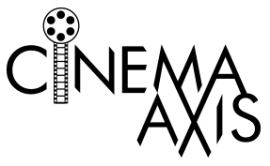In a year where hackers are routinely making the news for the sex crime of leaking photos of nude female celebrities, Open Windows is if nothing else a timely film. Nacho Vigalondo’s overly ambitious film not only sets its feet firmly within the internet sphere, but also attempts to serve as a commentary on our growing objectification of female celebrities.
When Nick (Elijah Wood) wins a dinner interview with his favourite actress Jill Goddard (Sasha Grey), and the subject of his fan website, he is over the moon with excitement. However, his joy slowly diminishes when the mysterious Chord (Neil Maskell) contacts Nick online to inform him that Jill has decided to cancel their meeting. Feeling for the broken-hearted young man, Chord offers Nick the chance to get an up close view of Jill unlike anything he ever dreamed of. Using advance software, Chord is able to hack into Jill’s laptop, cell phone and seemingly any other computer operated device.
Succumbing to his voyeuristic nature, Nick is captivated at first by the unprecedented access he is getting to Jill. This excitement quickly turns to dread as Nick, upon being blackmailed by Chord, realizes that he is a pawn in a deadly game in which his actions will impact whether or not Jill will die. Trapped in a labyrinth of deceit, and in a race against time, Nick learns the harsh price of online obsession.
Setting rather lofty goals for himself, Vigalondo puts forth an admirable attempt at climbing the mountain of expectations that the premise builds. Sadly his journey is pretty much sabotaged right from the start by the tool he chooses to use. Presenting the film completely from the perspective of open windows on a computer screen, Vigalondo falls into the same predicament as those who make found footage films. Mainly how do you keep characters filming the unfolding events even in the most extreme moments? Vigalondo never quite figures out a convincing solution to this dilemma.
As a result, the characters constantly make silly decisions in order to move the plot forward and justify the new camera angle. The character of Nick is a perfect example of this. Despite being proficient with technology, he comes across as being unrealistically naïve. He follows the stranger’s meticulous instructions, who he has only been chatting with online for a few minutes mind you, with the speedy rate of a kid popping out candy from a Pez dispenser. Things get even more absurd when a trio of Parisian hackers show up and set in motion a subplot that will lead to one convoluted final act.
The twisty finale overshadows one of the most interesting facets of Open Windows, its exploration of society’s need to turn female starlets into objects. There is a moment in the film where Jill is forced to sit in front of her computer and succumb to the gaze of her unknown assailant. It is such an uncomfortable sequence that Open Windows itself borders on exploitation, but that is the point. Society has blurred things so much that we no longer know where to draw the line of decency anymore. Sadly this message gets distilled in the complex, and at times nonsensical, nature in which Vigalondo presents his tale.
By confining himself to the logistical nightmare of presenting a thriller through a computer screen, Vigalondo’s story loses sight of itself. While Nacho Vigalondo’s ambition should be commended, it is definitely an original way to approach the subject matter; Open Windows does not reach the heights it aims for.


